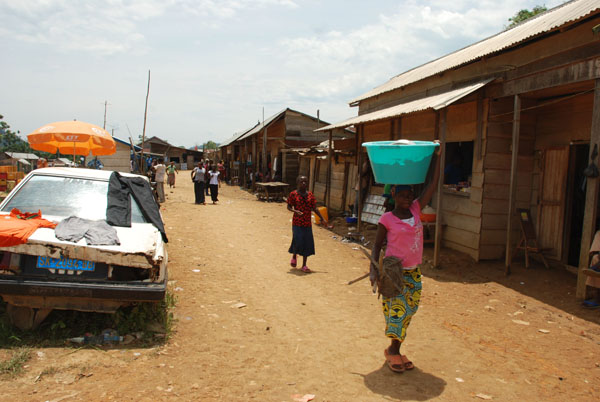
GOMA and BUKAVU, Democratic Republic of Congo — With Joseph Kabila reinstalled in Congo’s presidential palace for another five-year term, discord remains high in the restive eastern region over the irregularities of the vote and the count. But despite the low confidence many Congolese hold in the electoral commission, or CENI, and the Supreme Court—both of which are perceived as highly politicized—people in North and South Kivu have largely restrained themselves from publicly showing their discontent. The calm is in part state imposed and in part the effect of peoples’ resignation toward the outcome and interest in moving forward without provoking insecurity in a region prone to violence.
In North and South Kivu’s capitals of Goma and Bukavu, presidential contender Vital Kamerhe defeated Kabila with over 55 percent of votes, despite reported vote rigging by the presidential majority in both towns. Nationwide, Kabila victoriously garnered 48.9 percent, which many people in the East, as elsewhere, attribute partially to irregularities and fraud.
Riot police and soldiers deployed with tear gas deterred attempts to peacefully demonstrate. Early last week, crowds were dispersed and five opposition members arrested in Goma. Two people were temporarily detained in Bukavu. People in both towns voiced to Enough their frustration over the government’s tight control of free speech. The leader of MCSD, a coalition partner of Kamerhe’s UNC, in Bukavu complained:
I really do not understand why they cannot allow us to protest. What are they afraid of? We have no guns. Peaceful protest is enshrined in Congo’s constitution. We want to raise our voices and make them heard, to say no to the election results, which in my opinion are a big shame.
Patrolling police and the military similarly thwarted a pre-announced protest by opposition parties and their supporters in Buvaku on Tuesday. After the mayor and provincial police chief tried to call off the protest in a radio announcement, assembled protesters were brutally dispersed and 10 opposition members, including Tshisekedi’s UDPS federal secretary, were arrested. In an attempt to inhibit people from mobilizing, the government imposed a nation-wide ban on text messaging on December 3, which is still in place.
While the election results reflect more or less the peoples’ will in the two provincial capitals, in other parts of the territories, the situation looks much different. In North Kivu’s conflict-torn Masisi and Walikale, where irregularities and intimidation by soldiers loyal to the government were widespread, Kabila defeated Kamerhe by 29.49 and 20.38 points respectively. Civilians, community leaders, and legislative candidates from the two territories expressed to Enough their dissatisfaction that the elections and compilation of the votes were not transparent and thus not seen as fair. Despite feeling disenfranchised and having no other legitimate means to make their voices heard than to protest, the populations in the two territories have remained off the street. Conversations with residents and civil society leave the impression that the conflict-affected populations have come to prefer peace to free choice. Hence, they decided to accept any candidate as president, lawful or not, as long as relative stability prevails. Many fear the military, which has a strong presence and a notorious record in this part of the country. Also, residents of the Kivus know how fast things can explode, as was seen with the recent street violence that followed the kidnapping of the famous Hunde singer Fabrice Masumbuko in Goma.
While the general situation in the East has remained relatively calm, some election-related security risks still loom. Local compilation centers have already started publishing the provisional results of the legislative elections, also held on November 28. Systematic fraud favoring the presidential majority has been observed, and civilians are becoming increasingly agitated. Youth in South Kivu’s Walungug territory, where Kamerhe hails from, have begun boycotting CENI by throwing stones at their convoys transporting legislative ballots, which they believe to have been rigged. In addition, several armed groups, including the FDLR and APCLC Mayi-Mayi, have threatened reprisals should their favored parliamentarian candidates not win.
While eastern Congolese have accepted the reality of another five years of Kabila, they nevertheless expect the president to put his attention on the East. The population of the Kivus expects the president to deliver peace and development, from accessible education and health care, clean and reliable water, and electricity, to road infrastructure. A common complaint is that while the East carried Kabila to victory in 2006, he has neglected the region over the last five years. With the decrease of support from the Kivus, people assume Kabila will now shift his focus to the East to win back their favor. As a teacher and mother of five told Enough in Goma, “I hope he will now finally become the president of all Congolese as he promised in 2006.”
Amani Matabaro contributed to this post.
Photo: A woman walks through the town center in Walikale (Enough / Laura Heaton)

